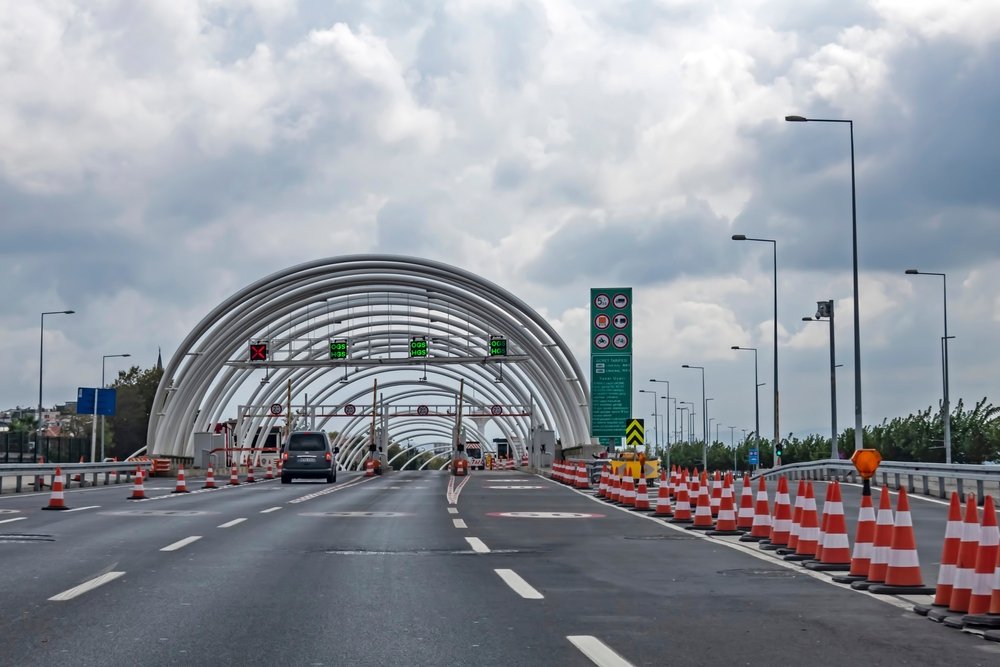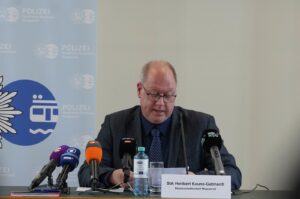The General Directorate of Highways has unveiled ambitious plans to enhance Türkiye’s transportation infrastructure through the implementation of smart technology initiatives, aimed at optimizing routes and bolstering efficiency.
Addressing the institution’s strategic plans for the coming years, the general directorate highlighted the objectives of these projects, including the reduction of travel times, enhancement of traffic safety and efficient utilization of energy and existing road capacities.
Speaking to Anadolu Agency (AA), Transport and Infrastructure Minister Abdulkadir Uraloğlu evaluated the strategic plan, stating that the rapid progress provided by technological developments brought about change in the transportation sector.
Emphasizing that efficiency, mobility, accessibility and environmentally friendly practices are steadily increasing and traveling is much easier, Uraloğlu said, “Our country has become a leader in its region and has a say in the world, as it deserves, by implementing the right transportation policies with the right investments in the last 21 years.”
Central to these efforts is the establishment of 18 centers for intelligent transportation systems deployment, facilitating seamless data exchange between vehicles and their surroundings. The completion of the Main Intelligent Transportation Systems Center (AUSM) and the 13th Highways Regional Directorate Center in Antalya marks significant milestones in this endeavor.
Initiated studies focus on equipping roads with information communication-based systems, encompassing monitoring, measurement, analysis and control mechanisms. A diverse range of technologies, from fiber optic lines to variable message systems, will be deployed to transform highways into smarter, more responsive networks.
By 2028, Türkiye aims to introduce 1,902 new components on state and provincial roads, spanning approximately 900 kilometers (560 miles). Concurrently, 1,400 kilometers of communication infrastructure will be deployed, supported by forthcoming legal regulations. The implementation of applications compatible with the national smart transportation system architecture is also prioritized within the plan period.
Additionally, mobile mapping initiatives will facilitate the collection and updating of inventory data for existing roads, covering a total of 57,937 kilometers by 2028. Complementing these efforts are plans to implement 27 information technology projects and establish 25 highway inspection stations.
Highlighting the significance of ongoing efforts, Uraloğlu emphasized: “Our endeavors, designed with an uninterrupted, eco-friendly, modern and people-centered service ethos, incorporating cutting-edge road technologies, have been made accessible to our citizens. Utilizing build-operate-transfer projects and alternative financial avenues alongside public resources, we’ve constructed infrastructure aligned with today’s smart transportation systems and poised for future technological advancements.”
“Presently, electronic and informational technologies enable the orchestration and management of all transportation facets drivers, vehicles, roads and infrastructure, while the realm of smart transportation systems, encompassing these applications, continues to expand. The robust technological framework and fully integrated data communication network established across our highways, coupled with AI-driven big data processing capabilities, attest that the vision driving our nation’s current highway infrastructure also charts the course for tomorrow’s roads. It adeptly embraces technological evolution, tailors infrastructure to highway standards and formulates highway policies accordingly,” said Uraloğlu.




















































Be First to Comment